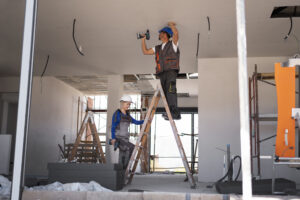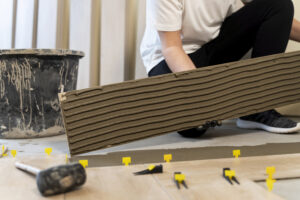
Undertaking home renovation in Singapore can be an exciting yet challenging process. If you are transforming an HDB flat, a condominium, or a landed property, it’s essential to approach the project with a clear plan to avoid unnecessary headaches. In this article, we will go through the dos and don’ts of home renovation in Singapore.
Dos of Home Renovation in Singapore
To ensure a successful home renovation in Singapore, it’s essential to follow best practices that will help you stay on track, within budget, and abiding by regulations. Here are some key tips to keep in mind.
1. Do Plan Your Budget Wisely

A well-thought-out budget is the cornerstone of any successful home renovation in Singapore project. Without proper budgeting, you risk overspending or, conversely, cutting corners in critical areas, which can lead to disappointing outcomes. A detailed budget helps you allocate resources effectively and prevents the shock of unexpected financial shortfalls.
It’s also wise to set aside a contingency fund, typically 10-20% of your total budget, to cover any unforeseen expenses that may arise during the renovation. This could include unexpected structural issues, delays, or additional work that wasn’t initially planned. A well-prepared budget will not only keep your finances in check but also allow you to make informed decisions throughout the renovation process.
2. Do Hire Licensed Contractors

Hiring licensed and experienced contractors is crucial for ensuring that your renovation project complies with these rules. Licensed contractors are familiar with the specific requirements and standards set by authorities like the Housing & Development Board (HDB) and the Building and Construction Authority (BCA). They can navigate the regulatory landscape on your behalf, securing the necessary permits and ensuring that all work meets local standards.
Moreover, working with licensed professionals minimizes the risk of substandard workmanship and legal issues. It also provides peace of mind, knowing that the renovation is in capable hands. Licensed contractors typically offer warranties on their work, which can protect you from defects or issues that may arise after the renovation is completed.
3. Do Obtain Necessary Permits
Before commencing any major home renovation in Singapore, obtaining the necessary permits is a critical step. Permits are particularly important for structural changes, electrical work, and plumbing modifications. Failing to secure the appropriate permits can lead to legal repercussions, including fines, work stoppages, and even the requirement to undo completed work.
Different types of properties, such as HDB flats, condominiums, and landed houses, may require different permits and approvals. For instance, HDB flats have specific guidelines regarding renovations that impact the building’s structure, plumbing, or electrical systems. It’s essential to consult your contractor or the relevant authorities to determine which permits are required for your specific renovation.
4. Do Focus on Quality Materials
When planning a home renovation in Singapore, the temptation to cut costs by choosing cheaper materials can be strong. However, investing in high-quality materials is a decision that pays off in the long run. Durable, high-quality materials enhance the aesthetic appeal of your home and reduce the need for frequent repairs and replacements.
Quality materials contribute to the overall durability and longevity of your renovation. For example, premium flooring, fixtures, and fittings are less likely to wear out or break, saving you from costly repairs down the line. While it may require a higher upfront expenditure, the benefits of durability, reduced maintenance, and improved aesthetics make it a wise choice for any home renovation in Singapore.
5. Do Consider Future Needs
As you plan your home renovation in Singapore, it’s important to think beyond your immediate needs. Consider how your living situation may change in the future and plan accordingly. Whether it’s accommodating a growing family, planning for aging in place, or enhancing the resale value of your property, taking future needs into account can save you time and money in the long run.
For instance, if you’re planning to start a family, it may be wise to design spaces that can easily transition into a nursery or playroom. If you’re nearing retirement, consider incorporating features that will make your home more accessible as you age, such as wider doorways, non-slip flooring, and grab bars in bathrooms.
Don’ts of Home Renovation Singapore
Avoiding common mistakes is just as important as following best practices. These don’ts will help you understanding the pitfalls that can derail your home renovation in Singapore.
1. Don’t Rush the Planning Process
One of the most significant mistakes you can make during a home renovation in Singapore is rushing through the planning phase. Proper planning is essential for avoiding costly errors and delays once the renovation is underway. A well-thought-out plan serves as a roadmap for the entire project, guiding decisions on design, materials, and timelines.
Rushing the planning process can lead to overlooked details, such as improper measurements, inadequate budgeting, or incomplete design concepts. Taking the time to thoroughly plan your renovation, including consulting with professionals and researching options, ensures a smoother process and a more successful outcome.
2. Don’t Ignore Your Neighbors

During a home renovation in Singapore, it’s important to be mindful of your neighbors, especially if you live in close quarters like HDB flats or condominiums. Noise, dust, and disruptions can be a source of tension, leading to complaints and strained relationships.
Before starting your renovation, notify your neighbors about the work schedule and expected duration. This courtesy helps manage expectations and fosters goodwill. Additionally, try to schedule noisy work during reasonable hours to minimize disturbance. In some cases, you may need to adhere to specific regulations regarding renovation work hours, particularly in HDB estates.
3. Don’t Overlook Safety Regulations
Safety should be a top priority during your home renovation in Singapore. Singapore has stringent safety regulations that must be adhered to, particularly in areas such as fire safety, electrical wiring, and structural integrity. Overlooking these regulations can lead to accidents, legal issues, and potentially hazardous living conditions.
Ensure that your contractor follows all relevant safety guidelines and that any work done on your property meets the required standards. For example, electrical work should be carried out by a licensed electrician, and any structural changes should be reviewed and approved by a qualified engineer.
4. Don’t Cut Corners to Save Costs
While it may be tempting to reduce expenses by opting for cheaper materials or labor, cutting corners during your home renovation Singapore project can lead to poor results and higher costs in the long run. Substandard materials and workmanship are more likely to result in defects, requiring additional repairs or replacements down the line.
Instead of focusing solely on cost savings, prioritize quality and compliance with regulations. This approach ensures that your renovation is durable, safe, and aesthetically pleasing. In the long run, investing in quality materials and skilled labor can save you money by reducing the need for frequent maintenance and repairs.
5. Don’t Forget About Resale Value

If you plan to sell your property in the future, it’s important to consider how your home renovation in Singapore decisions will impact its resale value. Certain design choices, such as overly personalized or unconventional layouts, may not appeal to a broad range of buyers, potentially limiting your property’s marketability.
When planning your renovation, opt for designs and features that enhance the overall functionality and appeal of your home. Neutral color schemes, modern amenities, and well-designed spaces are likely to attract more buyers and increase your property’s resale value.
Conclusion
Navigating the complexities of a home renovation in Singapore requires careful planning, adherence to regulations, and a focus on quality. By following these dos and don’ts, you can ensure that your renovation project is a success, resulting in a home that is beautiful, functional and compliant with Singapore’s stringent standards. Remember, the key to a successful renovation lies in working with licensed professionals, making informed decisions, and planning for both your current and future needs. With the right approach, your renovation journey can lead to a home that brings you joy and comfort for years to come.
Ready to ease your renovation process? Book an appointment with E³.SPACE, and let us bring your vision to life.


